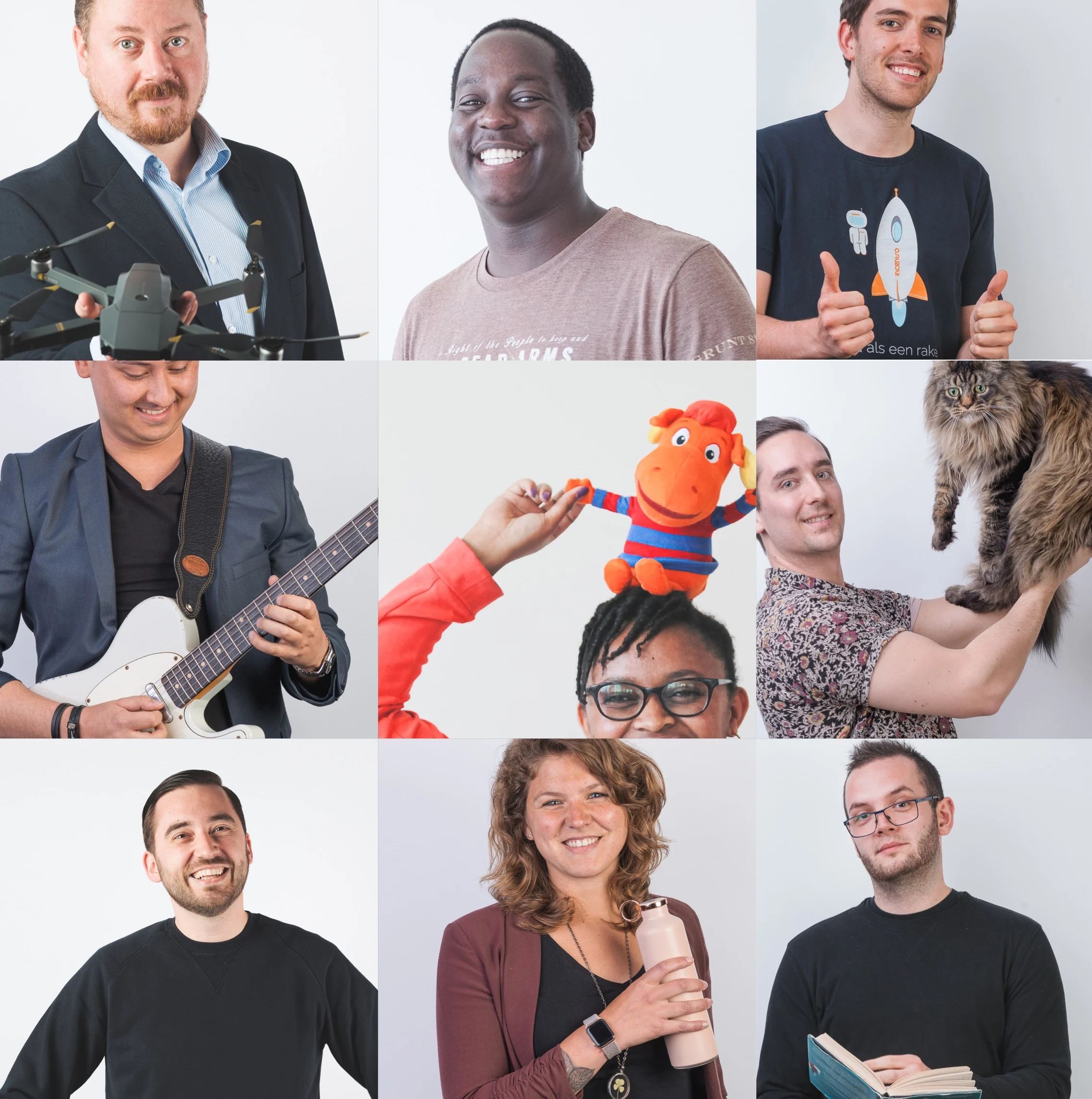You might have heard; the development and the go-to-market of most vaccines take up to at least one year. This virus does not discriminate, it can affect anybody. The fast spread of the Corona (COVID-19) virus is, therefore, a threat to every single one of us.
To us as individuals, but also to us as families, friends, companies, the economy, and in the end the world that we were used to. The only weapon against a virus is a vaccine. The only problem: the timeline for developing such a vaccine does not match the characteristics of a pandemic, which widely spreads itself in a few weeks or months. All help is desired to make sure the virus is tempered as soon as possible. Like everybody else we ask ourselves the question, what can we do besides staying at home?
We care for humans (and tech)
We are no doctors, for sure. But we do have some specialism and expertise in tech, obviously. So what better way is there, as an IT-company that strives for digital change, then to support the healthcare industry by providing them with the scarce resources they need to do their research? We felt like the current Corona situation underlined the high value of projects that support disease research, like resource projects as Folding@home. Therefore, we put our thoughts into work, about how we can take care of humans by taking care of the tech. We started off simple, to contribute right away.
Donating by sharing our resources
Did you know it is possible to donate idle resources to shared resource research projects, as for example Folding@home? Folding@home is a project set up by Stanford University that supports disease research projects. They use compute resources provided by the community to do calculations to aid in this research.
The resources, collected by Folding@home, are used to collect and process information for health research, like currently for Corona. The behavior of Corona can be simulated and studied. It helps to find out all ins and outs about the virus; How the virus works, how it might be cured and what our best chances are of developing a vaccine. In other words, we can not say it directly speeds up the process of finding a cure. Though it might indirectly. The project did not stay unnoticed. Large companies like Google and Intel partnered up with Folding@home and many enterprises are helping where they can.
Sounds promising, right?
Let’s find that cure
Take an engineer, a Kubernetes cluster and the intrinsic motivation to help. The result? 80% of the Kubernetes cluster of our Google Cloud Architect Dion Borsboom is now donating its resources for Corona research. For now, we set up a short-term solution, a ‘quick hack’, to immediately do our bit. The goal of the ‘quick hack’ is to support the Corona research by delivering extra resources so they have more computing power to find out more about the virus. The next step will be to build infrastructure that detects unused resources automatically and makes them useful by making them available to valuable disease research. We are not there yet but we like to embrace change and look ahead.
"If you are an engineer like me, you have probably thought about ways to help combat the pandemic that is putting our world on edge.” - Dion Borsboom, Google Cloud Architect
Teamwork makes the dream work
One thing is for sure: the crisis clearly results in team spirit. Of course it does, when it’s coming down to the health of our world economy and most important: the health of our people. This also results in the number of Folding@home users. Folding@home asked people to stand up and to donate all their available computers to contribute to Corona research. Since that announcement, the number of users increased explosively: from 30k users before the pandemic to 430k volunteers who do their bit. It’s still unclear what the precise effect will be on the research and development. Though this clearly made some researchers happy…
Next steps
Before Corona even hit us, we discussed starting an open-source project that automatically donates idle Kubernetes resources to health research projects. What is a better stimulant to kickstart and speed up this project, than the current Corona-crisis? This is the time to contribute to the research and hopefully help to shorten the development time of the Corona vaccine, so we can go back to our “normal” lives as soon as possible. After the Corona-crisis, this can be used for other important health research as well, as studies on Cancer and other diseases.
We hope to roll out this project in the upcoming months to achieve our ultimate goal: the open-source project that donates idle resources automatically, on a structural basis. Once implemented, the up- and downscaling will happen without any effort. Imagine the time and effort it would save when we face a similar virus outbreak in the future. When the world is back to normal, we can also help other research projects with these same resources. We could scale up the research resources in no time to help wherever we can. We will keep you in the loop!
Beat the next epidemic
Supporting Folding@home is just one way to help. Thousands of concepts arose to support each other and to beat through this together. Though this is one way for us as a tech company to contribute to the community. We will keep working on the project in the upcoming weeks and months, to develop from a ‘quick hack’ to a more solid solution that is able to donate idle resources to research projects now, and in the future. This way we can beat the next pandemic in top speed.
Want to know how to donate idle Kubernetes resources to Folding@home yourself? Read the blog of our Google Cloud Architect Dion Borsboom. Need some help? Let us know, we’re glad to help.
Together we can beat Corona.

